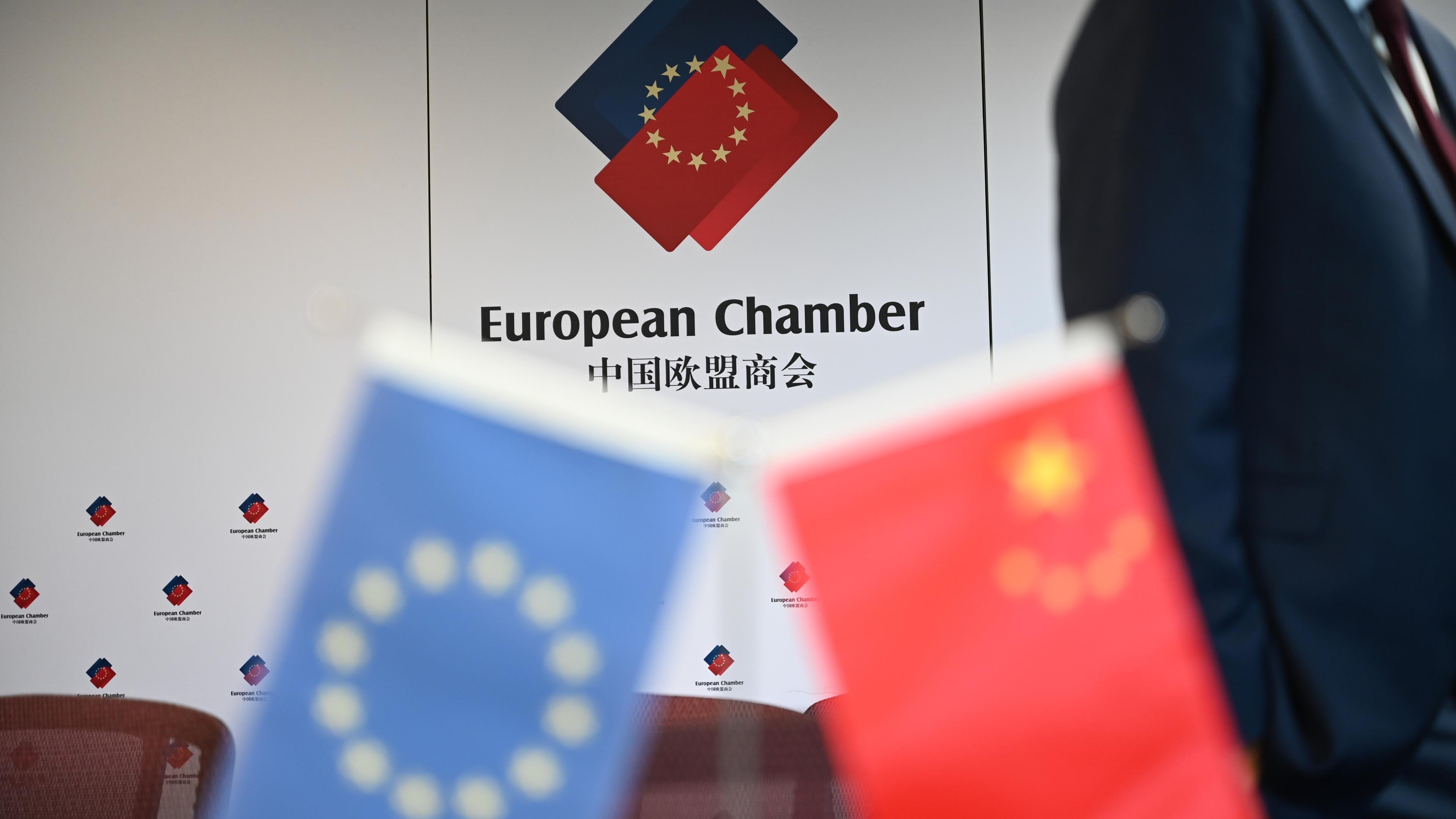The mood of European companies in China reaches low point

According to a survey, the mood among European companies in China is at a low point. Only 29 percent of companies are optimistic about their growth prospects in the People’s Republic for the next two years, as the business climb question of the European Union in China showed.
The US tariffs, but also developments in the EU, contributed to uncertainty, said Chamber President Jens Eskelund in Beijing. « This inconsistency, which harms the business so much, makes it difficult to stay optimistic, » said the Dane.
This has another three percentage points in comparison to the previous year. For 2024, almost three quarters of the companies stated that their business in China had become more difficult.
Why does the hope of the EU companies drop?
According to Eskelund, China had made the planning and reliability of the market attractive, and companies earned good money there. « But it seems that the days of high profits and filling bank accounts with little effort are over. » Companies would have to work hard for their money, he said.
Of the 503 companies involved in the survey, most of the people are concerned about the economic situation of China. The demand remains weak, even as a result of the crisis in the real estate sector important for economic output. Consumers consume too little. Because when apartments lose value, their owners sometimes tend to save.
In addition, China’s companies become stronger competition and in many industries there is a bitter price war that presses the profits. According to the chamber, Beijing’s « frequent and opaque » changes to regulations are also unsettling. For some companies, a “politicization” of its industry also makes business difficult.
Jens Eskelund, President of the Chamber of Commerce of the European Union in China, speaks to journalists. Photo: Johannes Neudecker/dpa
Which industries are affected?
According to the interests of almost 1,700 members, almost all industries see problems for their business. In the area of cosmetics, all responding companies were therefore also because of the weak demand. This was followed by the construction, where the real estate crisis and high debts of local governments cause difficulties.
China does not process the complicated requests for exporting the important raw materials quickly enough.
The auto industry, the petrochemical industry, the area of IT and telecommunications, as well as the food and beverage industry are also affected. Only the aviation industry, in which China is still clearly dependent on foreign companies, hardly saw any change.
What does the customs dispute have to do with the USA?
The EU Chamber of Commerce interviewed its members between January and February. The period was therefore before the escalation of the commercial dispute between the two largest economy in the world in April and the unification of Washington and Beijings in May to temporarily reduce the tariffs of 145 percent or 125 percent to date.
But one big problem remains: the export controls on rare earths and magnets, which China introduced in April in the course of the trade dispute with the USA. « This has real, immediate and profound effects on many European companies, » said Eskelund. This week, companies in Europe whose stocks were running out could threaten to stop and cause high costs.
Car manufacturers get more time for EU climate specifications
China does not process the complicated requests for exporting the important raw materials quickly enough, said Eskelund. According to him, this proves that Europe must reduce its risk of dependency on China.
How do companies rule on the situation in China?
EU companies are becoming more careful. Not even every four of ten companies want to continue investing in China this year, as the survey shows – a record low. In addition, around half plans cost reductions, according to which the chamber means job cuts in many cases.
Instead, the investments flow to Europe instead. More companies also adapt their supply chains to protection against geopolitical risks. Many locate their business and produce in China for China. Other companies shift their supply chains in parts to Europe or Southeast Asia.







:format(webp)/s3/static.nrc.nl/images/gn4/stripped/data132852852-db78fb.jpg)